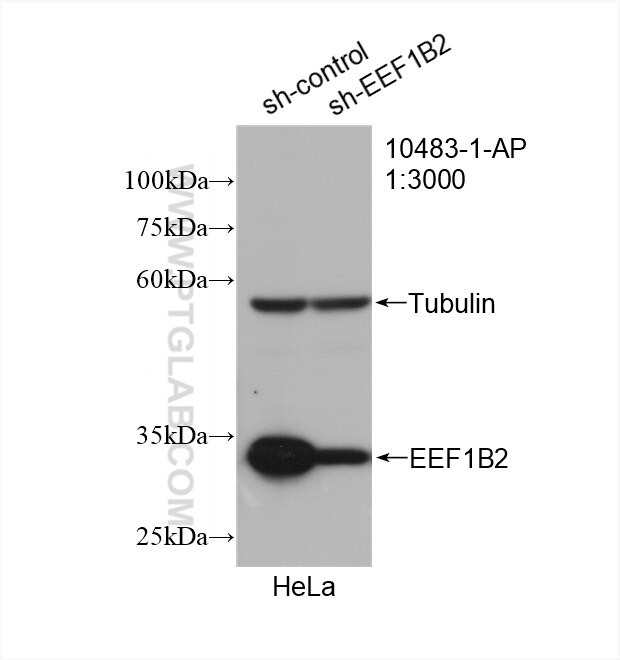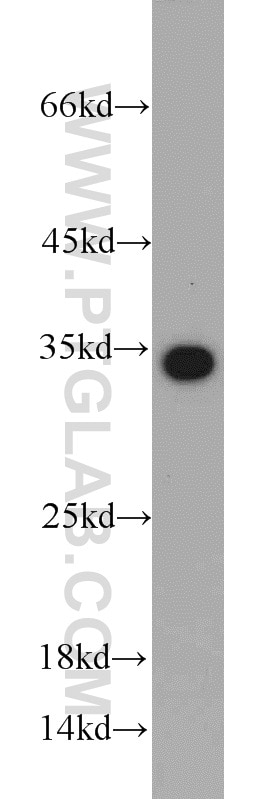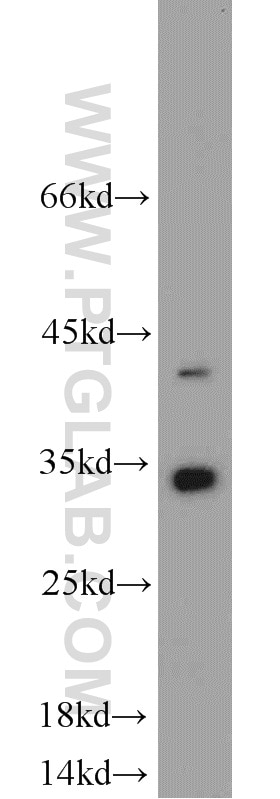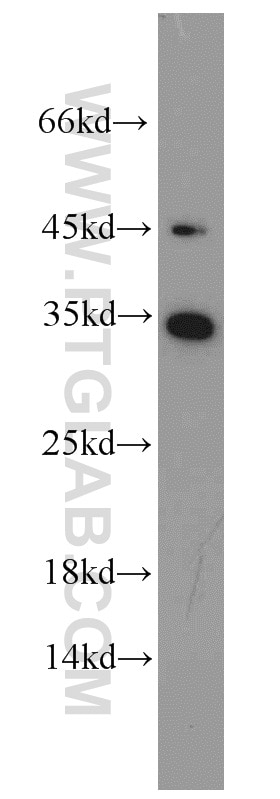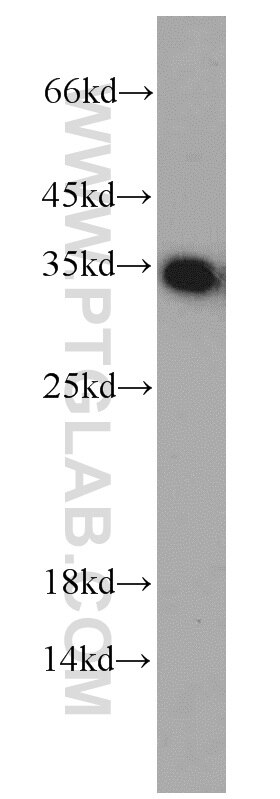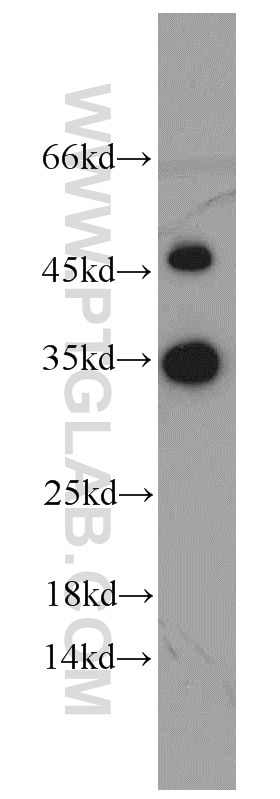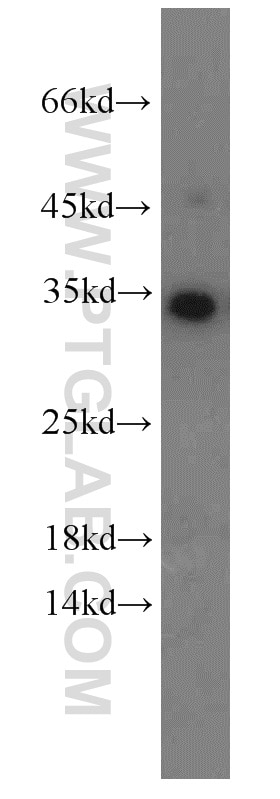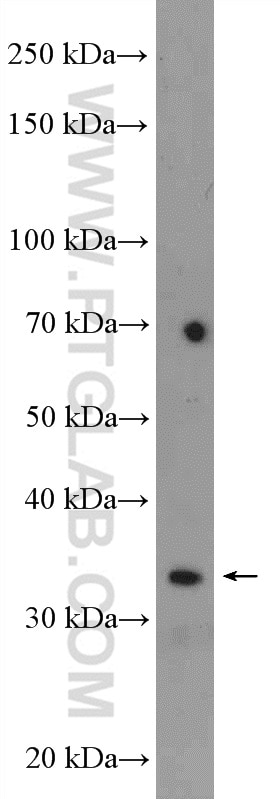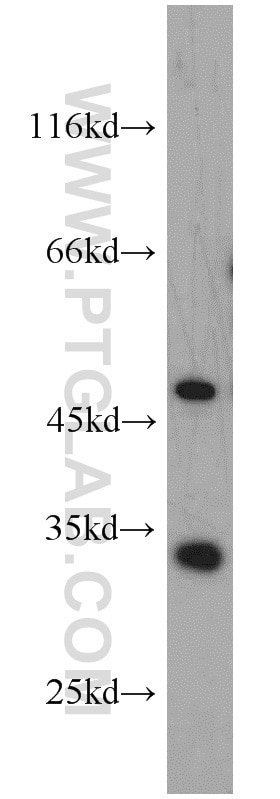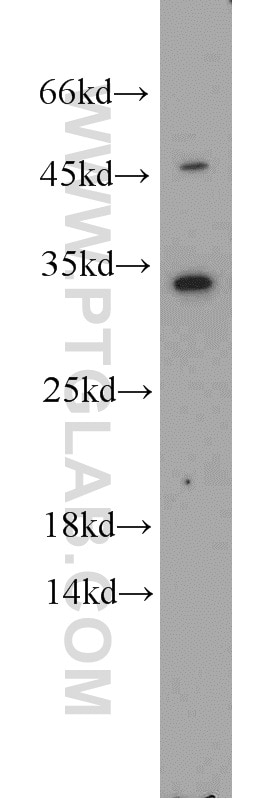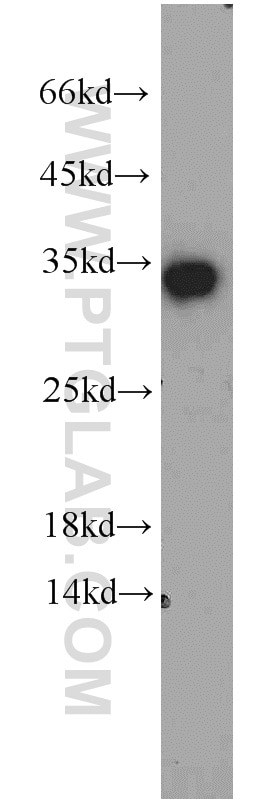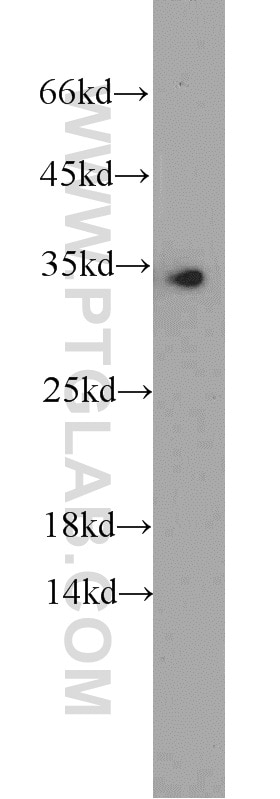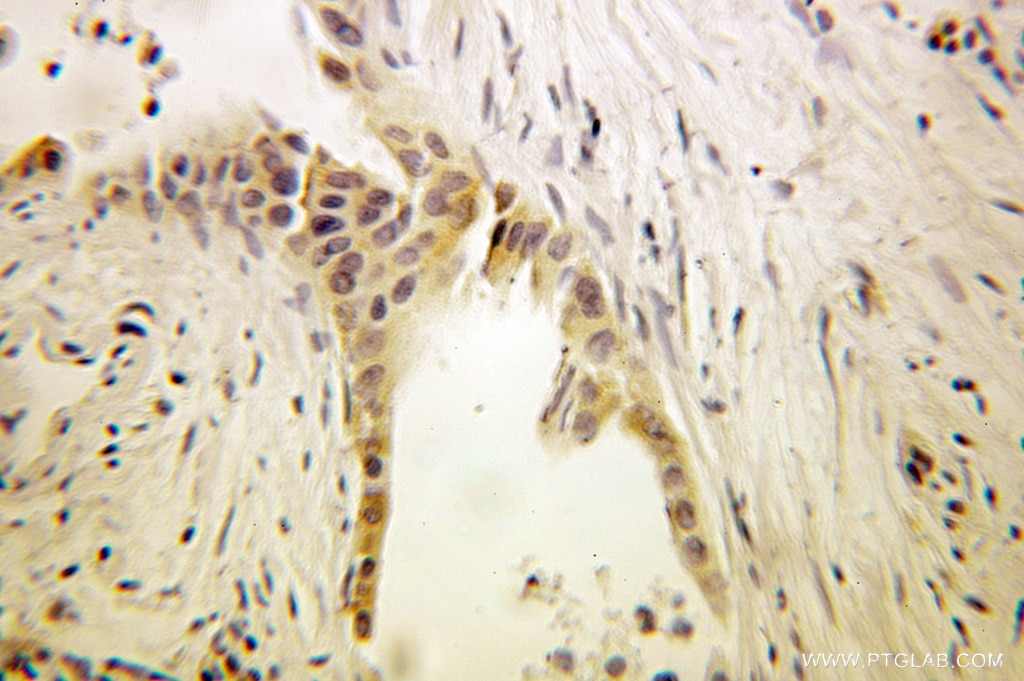- Featured Product
- KD/KO Validated
EEF1B2 Polyklonaler Antikörper
EEF1B2 Polyklonal Antikörper für WB, IHC, ELISA
Wirt / Isotyp
Kaninchen / IgG
Getestete Reaktivität
human, Maus, Ratte
Anwendung
WB, IHC, IF, IP, ELISA
Konjugation
Unkonjugiert
Kat-Nr. : 10483-1-AP
Synonyme
Galerie der Validierungsdaten
Geprüfte Anwendungen
| Erfolgreiche Detektion in WB | PC-3-Zellen, HEK-293-Zellen, HeLa-Zellen, HepG2-Zellen, Jurkat-Zellen, Mausnierengewebe, SKOV-3-Zellen |
| Erfolgreiche Detektion in IHC | humanes Pankreaskarzinomgewebe Hinweis: Antigendemaskierung mit TE-Puffer pH 9,0 empfohlen. (*) Wahlweise kann die Antigendemaskierung auch mit Citratpuffer pH 6,0 erfolgen. |
Empfohlene Verdünnung
| Anwendung | Verdünnung |
|---|---|
| Western Blot (WB) | WB : 1:500-1:2000 |
| Immunhistochemie (IHC) | IHC : 1:20-1:200 |
| It is recommended that this reagent should be titrated in each testing system to obtain optimal results. | |
| Sample-dependent, check data in validation data gallery | |
Veröffentlichte Anwendungen
| KD/KO | See 2 publications below |
| WB | See 12 publications below |
| IF | See 2 publications below |
| IP | See 1 publications below |
Produktinformation
10483-1-AP bindet in WB, IHC, IF, IP, ELISA EEF1B2 und zeigt Reaktivität mit human, Maus, Ratten
| Getestete Reaktivität | human, Maus, Ratte |
| In Publikationen genannte Reaktivität | human, Maus, Ratte |
| Wirt / Isotyp | Kaninchen / IgG |
| Klonalität | Polyklonal |
| Typ | Antikörper |
| Immunogen | EEF1B2 fusion protein Ag0742 |
| Vollständiger Name | eukaryotic translation elongation factor 1 beta 2 |
| Berechnetes Molekulargewicht | 29 kDa |
| Beobachtetes Molekulargewicht | 34 kDa |
| GenBank-Zugangsnummer | BC004931 |
| Gene symbol | EEF1B2 |
| Gene ID (NCBI) | 1933 |
| Konjugation | Unkonjugiert |
| Form | Liquid |
| Reinigungsmethode | Antigen-Affinitätsreinigung |
| Lagerungspuffer | PBS mit 0.02% Natriumazid und 50% Glycerin pH 7.3. |
| Lagerungsbedingungen | Bei -20°C lagern. Nach dem Versand ein Jahr lang stabil Aliquotieren ist bei -20oC Lagerung nicht notwendig. 20ul Größen enthalten 0,1% BSA. |
Hintergrundinformationen
In eukaryotes, the translation elongation factor eEF1A responsible for transporting amino-acylated tRNA to the ribosome forms a higher-order complex, eEF1H, with its guanine-nucleotide-exchange factor eEF1B. eEF1B consists of three subunits: eEF1B alpha, eEF1B beta and eEF1B gamma. The eEF1B2 possess the nucleotide-exchange activity. Although several models on the basis of in vitro experiments have been proposed for the macromolecular organization of the eEF1H complex, these models differ in various aspects. The human eukaryote elongation factor 1 beta 2 (eEF1B2) migrated as a 30 kDa protein in SDS-PAGE. This antibody is a rabbit polyclonal antibody raised against full length EEF1B2 of human origin.
Protokolle
| Produktspezifische Protokolle | |
|---|---|
| WB protocol for EEF1B2 antibody 10483-1-AP | Protokoll herunterladen |
| IHC protocol for EEF1B2 antibody 10483-1-AP | Protokoll herunterladen |
| Standard-Protokolle | |
|---|---|
| Klicken Sie hier, um unsere Standardprotokolle anzuzeigen |
Publikationen
| Species | Application | Title |
|---|---|---|
PLoS Genet Dual genome-wide CRISPR knockout and CRISPR activation screens identify mechanisms that regulate the resistance to multiple ATR inhibitors.
| ||
Front Mol Biosci Heat Shock-Induced Dephosphorylation of Eukaryotic Elongation Factor 1BδL by Protein Phosphatase 1. | ||
Proteomics Prenatal alcohol exposure alters phosphorylation and glycosylation of proteins in rat offspring liver. | ||
Amino Acids Polyamine stimulation of eEF1A synthesis based on the unusual position of a complementary sequence to 18S rRNA in eEF1A mRNA. | ||
PLoS One Integrated proteomic analysis of human cancer cells and plasma from tumor bearing mice for ovarian cancer biomarker discovery. |
Rezensionen
The reviews below have been submitted by verified Proteintech customers who received an incentive for providing their feedback.
FH WEI (Verified Customer) (01-17-2020) | KO validated by KO mice
|
